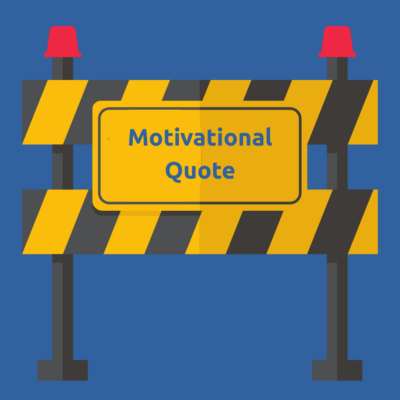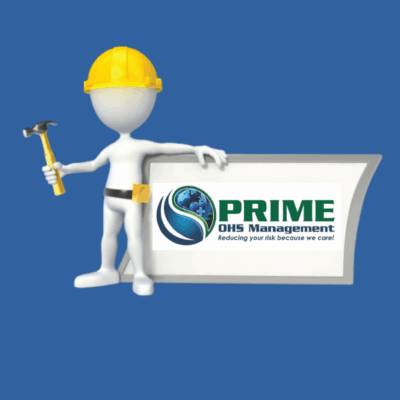The construction industry in South Africa is dynamic and competitive, requiring companies to continuously adapt and innovate to stay ahead. With economic fluctuations, evolving regulations, and technological advancements, maintaining a competitive edge is more challenging than ever. This blog explores strategies that construction companies in South Africa can implement to stay competitive, improve efficiency, and achieve long-term success.
Understanding the Competitive Landscape
- Economic Factors The South African economy influences the construction industry significantly. Economic growth, interest rates, and inflation affect project funding, material costs, and overall demand.
- Regulatory Environment Compliance with local building codes, safety standards, and environmental regulations is essential. Staying updated with regulatory changes can give companies a competitive advantage.
- Technological Advancements The adoption of new technologies can streamline operations, improve quality, and reduce costs. Keeping up with technological trends is crucial for staying competitive.
- Market Demand Understanding market demand and client expectations helps companies tailor their services and improve client satisfaction. This involves identifying trends in residential, commercial, and industrial construction.
Strategies to Stay Competitive
- Invest in Technology
Technological advancements are transforming the construction industry. Investing in technology can enhance efficiency, accuracy, and overall project management.
Key Technologies:
- Building Information Modeling (BIM): BIM provides detailed digital representations of buildings, improving design accuracy and collaboration among stakeholders.
- Drones: Drones are used for site surveys, inspections, and monitoring, reducing the time and cost associated with these tasks.
- Robotics: Robotics can automate repetitive tasks, improving productivity and safety on construction sites.
- Project Management Software: Tools like Procore and Buildertrend streamline project management, facilitating better communication and tracking.
Best Practices:
- Regular Training: Ensure that employees are trained to use new technologies effectively.
- Stay Updated: Keep up with the latest technological trends and evaluate their potential impact on your business.
- Integrate Systems: Ensure that new technologies are integrated with existing systems for seamless operations.
- Focus on Sustainability
Sustainability is becoming increasingly important in the construction industry. Emphasizing green building practices can differentiate your company and attract environmentally conscious clients.
Sustainable Practices:
- Energy-Efficient Designs: Incorporate energy-efficient designs and materials to reduce the building’s carbon footprint.
- Waste Management: Implement waste reduction and recycling programs on construction sites.
- Renewable Energy: Use renewable energy sources, such as solar panels, in construction projects.
- Green Certifications: Obtain green building certifications, such as LEED or Green Star, to demonstrate your commitment to sustainability.
Best Practices:
- Client Education: Educate clients about the benefits of sustainable building practices.
- Sustainable Suppliers: Partner with suppliers who prioritize sustainability.
- Continuous Improvement: Regularly review and improve your sustainability practices.
- Enhance Client Relationships
Building strong relationships with clients is crucial for repeat business and referrals. Providing exceptional service and maintaining open communication can enhance client satisfaction and loyalty.
Client Relationship Strategies:
- Clear Communication: Maintain clear and consistent communication with clients throughout the project.
- Responsive Service: Address client inquiries and concerns promptly.
- Transparency: Be transparent about project timelines, costs, and potential challenges.
- Feedback: Solicit and act on client feedback to improve your services.
Best Practices:
- Personalized Service: Tailor your services to meet the specific needs and preferences of each client.
- Regular Updates: Provide regular updates on project progress and any changes.
- Post-Project Support: Offer post-project support and follow-up to ensure client satisfaction.
- Improve Operational Efficiency
Streamlining operations can reduce costs, improve productivity, and enhance project delivery. Efficient operations can also lead to higher client satisfaction and repeat business.
Efficiency Strategies:
- Lean Construction: Implement lean construction principles to minimize waste and maximize value.
- Standardized Processes: Develop standardized processes for common tasks to improve consistency and efficiency.
- Resource Management: Optimize resource allocation to ensure that labor, materials, and equipment are used effectively.
- Automation: Use automation tools to reduce manual tasks and improve accuracy.
Best Practices:
- Continuous Improvement: Regularly review and improve operational processes.
- Employee Training: Provide ongoing training to employees to enhance their skills and productivity.
- Performance Metrics: Use performance metrics to track efficiency and identify areas for improvement.
- Focus on Quality
Maintaining high-quality standards is essential for building a strong reputation and ensuring client satisfaction. Quality control measures should be integrated into every stage of the construction process.
Quality Control Strategies:
- Regular Inspections: Conduct regular inspections to ensure that construction meets design and safety standards.
- Quality Materials: Use high-quality materials to ensure durability and performance.
- Skilled Workforce: Hire skilled workers and provide them with the necessary training and resources.
- Quality Management Systems: Implement quality management systems to monitor and improve quality standards.
Best Practices:
- Quality Assurance Programs: Develop and implement quality assurance programs to maintain high standards.
- Supplier Relationships: Build strong relationships with reliable suppliers to ensure consistent material quality.
- Client Expectations: Understand and meet client expectations for quality.
- Develop a Strong Brand
A strong brand can differentiate your company in a competitive market. Building a strong brand involves creating a positive image, establishing trust, and communicating your unique value proposition.
Branding Strategies:
- Consistent Messaging: Ensure that your branding and messaging are consistent across all channels.
- Online Presence: Maintain a professional website and active social media profiles.
- Client Testimonials: Use client testimonials and case studies to build credibility and trust.
- Marketing Campaigns: Develop targeted marketing campaigns to reach your ideal clients.
Best Practices:
- Brand Values: Clearly define your brand values and ensure that they are reflected in your business practices.
- Client Engagement: Engage with clients and prospects through various channels, including social media, email, and events.
- Continuous Monitoring: Monitor your brand’s performance and make adjustments as needed.
- Invest in Employee Development
Your employees are your most valuable asset. Investing in their development can improve productivity, enhance job satisfaction, and reduce turnover.
Employee Development Strategies:
- Training Programs: Provide regular training programs to enhance skills and knowledge.
- Career Development: Offer career development opportunities to help employees advance within the company.
- Employee Engagement: Foster a positive work environment that encourages employee engagement and collaboration.
- Recognition and Rewards: Recognize and reward employees for their contributions and achievements.
Best Practices:
- Continuous Learning: Encourage a culture of continuous learning and improvement.
- Employee Feedback: Solicit and act on employee feedback to improve workplace conditions.
- Work-Life Balance: Promote work-life balance to enhance employee well-being and productivity.
- Adapt to Market Changes
The construction industry is constantly evolving. Staying competitive requires adapting to market changes and being proactive in responding to new opportunities and challenges.
Adaptation Strategies:
- Market Research: Conduct regular market research to stay informed about industry trends and client preferences.
- Agility: Develop agile business practices that allow you to quickly respond to changes in the market.
- Innovation: Foster a culture of innovation to develop new solutions and improve existing processes.
- Diversification: Diversify your services and target markets to reduce risk and capture new opportunities.
Best Practices:
- Trend Analysis: Regularly analyze market trends and adjust your strategies accordingly.
- Client Needs: Stay attuned to changing client needs and preferences.
- Flexibility: Be flexible and willing to pivot when necessary.
Case Studies of Competitive Construction Companies in South Africa
1. WBHO Construction
Overview: WBHO Construction is one of South Africa’s leading construction companies, known for its commitment to quality and innovation.
Competitive Strategies:
- Technology Integration: WBHO uses advanced technologies such as BIM and drones to enhance project management and efficiency.
- Sustainability Focus: The company emphasizes sustainable building practices and has achieved several green building certifications.
- Client Relationships: WBHO maintains strong client relationships through clear communication and responsive service.
2. Murray & Roberts
Overview: Murray & Roberts is a renowned engineering and construction services company in South Africa, recognized for its strategic approach to market changes.
Competitive Strategies:
- Market Adaptation: Murray & Roberts continuously adapts to market changes and explores new opportunities.
- Employee Development: The company invests in employee training and development to enhance skills and productivity.
- Quality Control: Murray & Roberts implements rigorous quality control measures to ensure high standards.
3. Stefanutti Stocks
Overview: Stefanutti Stocks is a diversified construction group in South Africa, known for its innovation and client-centric approach.
Competitive Strategies:
- Client-Centric Approach: The company prioritizes client satisfaction and tailors its services to meet specific needs.
- Technological Innovation: Stefanutti Stocks adopts new technologies to improve efficiency and project delivery.
- Sustainability Initiatives: The company incorporates sustainable practices into its projects to reduce environmental impact.
Future Trends in the Construction Industry
- Increased Use of Prefabrication Prefabrication and modular construction techniques are gaining popularity due to their efficiency and cost-effectiveness. These methods allow for faster construction and reduced waste.
- Smart Building Technologies The integration of smart building technologies, such as IoT and AI, is enhancing building performance and management. These technologies provide real-time data and automation for improved efficiency.
- Sustainable Construction Sustainability will continue to be a key focus, with increasing demand for green building practices and materials. Companies that prioritize sustainability will have a competitive advantage.
- Digital Transformation The construction industry is undergoing digital transformation, with the adoption of digital tools and platforms to streamline processes and improve collaboration.
- Focus on Safety Safety remains a top priority, with advancements in safety technologies and practices to protect workers and reduce accidents on construction sites.
Conclusion
Staying competitive in the construction industry in South Africa requires a multifaceted approach. By investing in technology, focusing on sustainability, enhancing client relationships, improving operational efficiency, maintaining high-quality standards, developing a strong brand, investing in employee development, and adapting to market changes, construction companies can achieve long-term success. Case studies of companies like WBHO Construction, Murray & Roberts, and Stefanutti Stocks demonstrate the effectiveness of these strategies. As the industry evolves, staying informed about future trends and continuously improving business practices will be key to maintaining a competitive edge in the South African construction market.
About Victor Terblanche
- Web |
- More Posts(28)









Gona Moodley
We are the Largest Distributor of Thermal Insulation and Cladding and would be pleased to Supply Materials in the Building and HVAC industries.